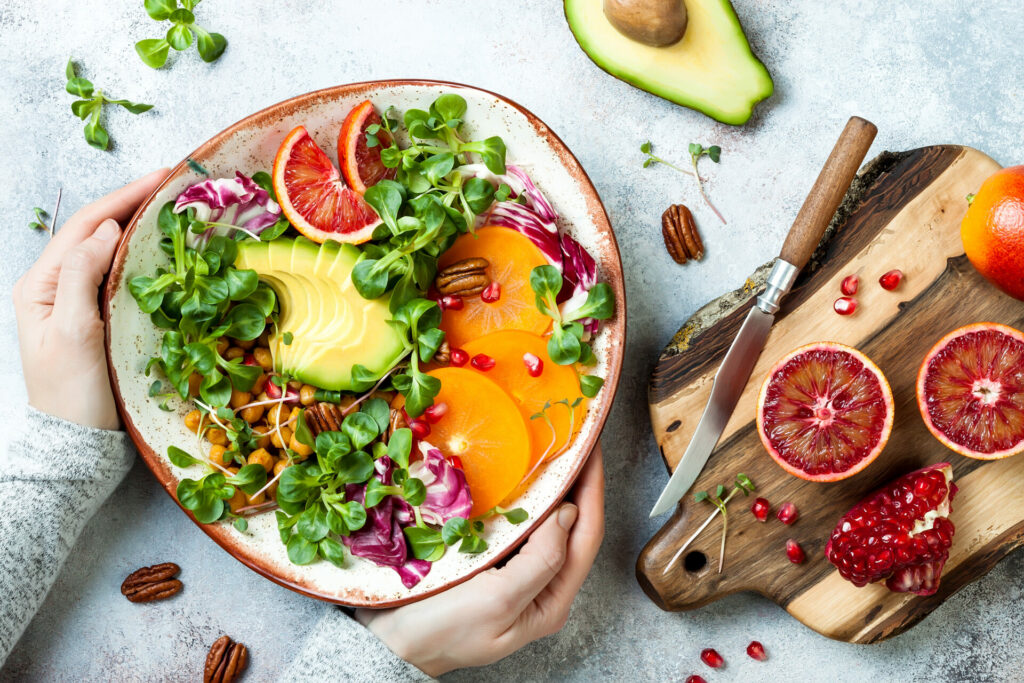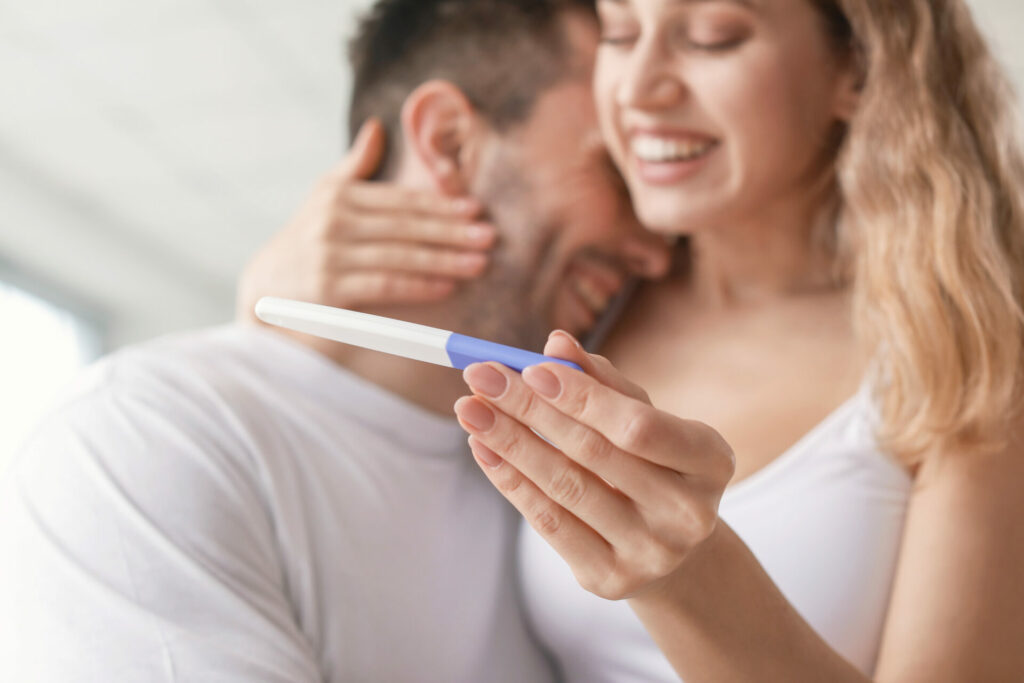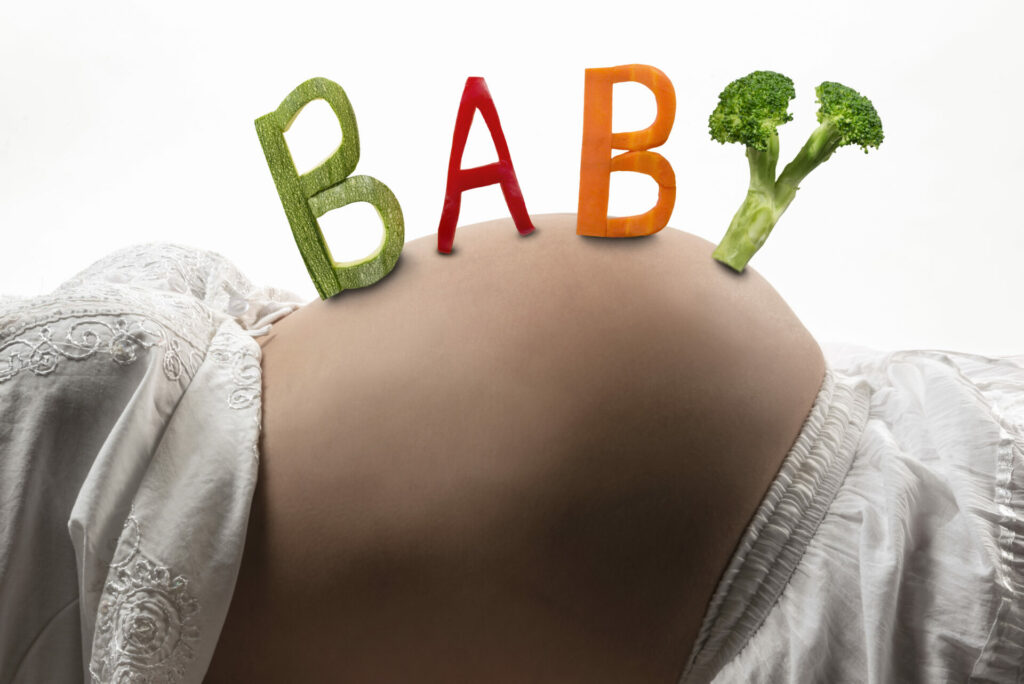Our understanding and awareness of the links between diet and fertility can be traced all the way back to Hippocrates, the ‘Father of Medicine’ who lived around 460 – 370 BC and advocated special fertility diets for both men and women in order to optimise their chances of having a baby.
He was onto something as this mirrors the current evidence which recognises that each partner plays an equal role in conception and fertility, with male infertility affecting up to one third of couples.
Infertility is a heartbreaking reality for more and more individuals with figures showing that IVF cycles increased from 6,700 in the UK alone in 1991 to 69,000 in 2019. Along with medical help and intervention, there is a lot people can do to improve their fertility and increase the chances of a healthy baby.
‘The standard Western diet containing high levels of animal protein, saturated fat, salt and sugar is not good for our general well-being, or fertility. But a diet rich in whole plant foods has been shown to have many beneficial effects on both male and female fertility’
So it makes sense that both partners optimise their nutritional status prior to conception. The standard Western diet containing high levels of animal protein, saturated fat, salt and sugar and low levels of fibre is not good for our general well-being, fertility or gut health. But a diet rich in whole plant foods, however, has been shown to have many beneficial effects on both male and female fertility.
Fertility Diet

It is important to highlight that a whole food plant-based diet will not guarantee that you fall pregnant and eventually give birth to a baby [as there may be an underlying health issue that needs surgery or medical treatment]. But what it can do is help to optimise both male and female fertility to improve the chances of conceiving.
It does this by creating an anti-inflammatory, antioxidant-packed environment and positively impacting egg and sperm quality. Lifestyle changes alongside a healthy plant-based diet also help to reduce stress, aid sleep, improve your fitness and help you to minimise or avoid substances that can negatively affect fertility. All of these things combined can mean that a man is in the best health to provide his sperm and a woman is in the best physical shape to prepare for and carry a baby.
The Role of Fibre

Fibre plays a hugely important role in optimising fertility, especially in the hormone-driven conditions polycystic ovary syndrome (PCOS) and endometriosis. For women with PCOS, where good blood glucose control is essential, fibre helps prevent those spikes in insulin and blood glucose levels which can make the condition so much harder to manage.
Fibre also helps to maintain hormone balance and it does this by binding with excess hormones filtered by our livers and excreting them in our faeces. If our diets are low in fibre there are insufficient amounts to bind with the excess hormones and they will re-enter our blood stream and continue circulating.
‘Lifestyle changes alongside a healthy plant-based diet also help to reduce stress, aid sleep, improve your fitness and help you to minimise or avoid substances that can negatively affect fertility’
Certain types of fibre also provide food for our gut bugs to feed on and thrive – they particular love specific plant fibres called prebiotics found in onions, asparagus, bananas, artichokes and whole-wheat foods – and a healthy gut environment is important for both physical and mental health. We should be aiming for 30 plus different plant foods a week as part of the fertility diet and these include whole grains and pseudo grains such as quinoa and buckwheat, legumes, fruits, vegetables, nuts and seeds.
The Importance of Fat
The type of fat we eat influences sperm and egg quality. Fatty acids, which are the main components of fat, play so many roles in the body. They help us to absorb fertility-friendly fat soluble vitamins, A, D and E, and they are needed to maintain the structure of our cells and for good hormone health. They are also used as energy during the time a woman’s egg is maturing and in early embryo development, so it is important that we get enough fat in our diets. The key is focusing on the right type of fat.
For men, diets rich in anti-inflammatory omega 3 fatty acids have been shown to improve sperm health, quality and motility, whereas high intakes of saturated and trans fats adversely affect sperm quality. This means eating a variety of foods including walnuts, chia and flax seeds, leafy vegetables, vegetable oils and soya such as tofu and edamame beans. I also recommend an omega 3 algae (the omega 3 source for fish) supplement for plant-based eaters as the body is not very efficient in converting the omega 3s from food sources into the form the body prefers.
For women, monounsaturated fats are important, especially when they replace saturated and trans fats, and these can be found in foods including olive oil, olives, avocados and nuts.
Key Micronutrients

There are many micronutrients essential for fertility and these include vitamins A, C, D, E and folate, and the minerals zinc, iodine, selenium and choline. In order to consume enough of these important nutrients on a fertility diet we should aim for a variety of plant foods, including beans, chickpeas, lentils, soya, whole grains, nuts, seeds, fruits and vegetables.
It is also important for all women trying to conceive to take a 400mcg (microgram) folic acid supplement up until the end of the first trimester. I also recommend a daily B12 and iodine supplement of 25mcg and 150mcg respectively.
Although there are no set guidelines for women to take iodine during the preconception period, it is an important nutrient for thyroid and hormone health, egg maturation and is seen as a key nutrient for the first 1000 days of life: from conception to just before the child’s second birthday. This is because the foetus is reliant on maternal iodine stores until around week 18 of pregnancy. When choosing an iodine supplement it should be non-kelp derived and should list potassium iodate or iodide in the ingredients.
Vitamin D
It is also important for everyone, regardless of their dietary pattern, to supplement with vitamin D. This vitamin is important for fertility, with receptors located in the ovaries, placenta and endometrium, as well as in testicles and sperm. Adequate serum Vitamin D levels are associated with more positive pregnancy tests, clinical pregnancies and live births in women undergoing artificial reproductive technology (ART). However, there is no association between miscarriage and Vitamin D status.
In men, Vitamin D deficiency has been shown to be associated with low serum testosterone concentrations and poor semen quality, including reduced sperm number, movement and morphology.
Plant-based sources of vitamin D for a fertility diet include fortified plant milk and yoghurts and mushrooms exposed to sunlight. You can do this yourself by leaving them on a windowsill with the window open (the UVB rays cannot penetrate glass) or leaving them outside.
A plant-based dietary pattern is a colourful, nutrient packed way of eating with a huge number of benefits for optimising fertility and general health.


Lisa Simon RD is specialist dietitian with nine years’ clinical experience working in the NHS. Her book is printed by Hammersmith Books and available on Amazon for £16.99.
For delicious plant-based recipes and inspiration, visit our FOOD section













